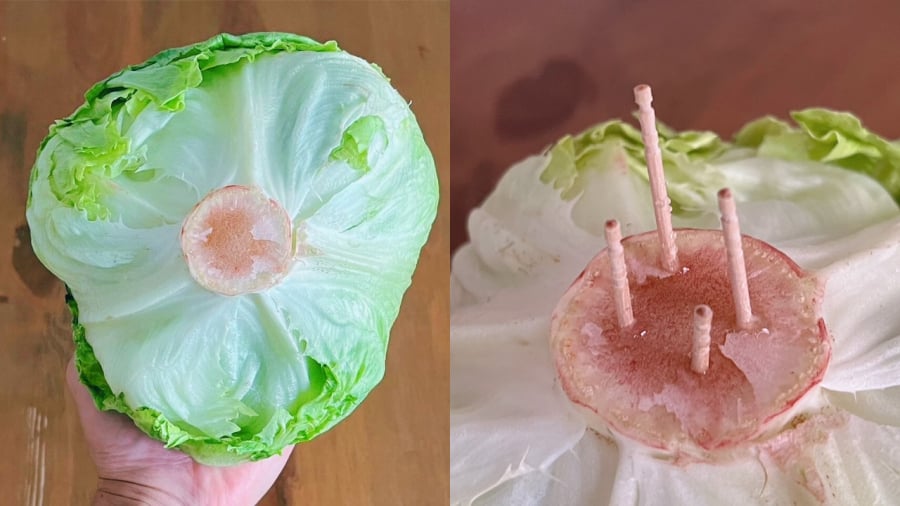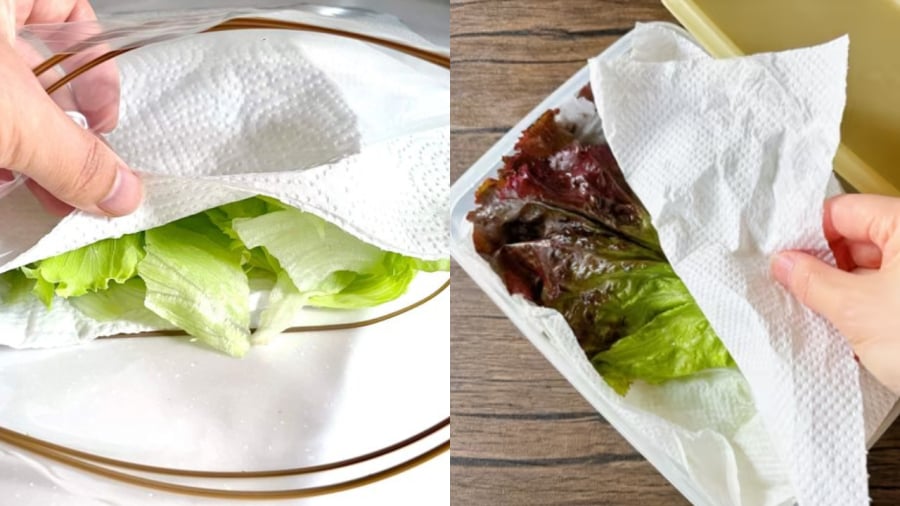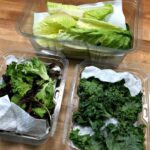Keep Your Lettuce Fresh with Toothpicks
Lettuce is a type of leafy green commonly used in daily meals. However, this vegetable is high in water content and has delicate leaves, so improper storage can lead to wilting, bruising, or rotting.
To keep your lettuce fresh, try using 3-4 sharp wooden toothpicks. Insert the toothpicks into the lettuce head’s stem, pushing them deep enough so that only a small portion of the toothpick remains visible. This technique helps retain moisture and warmth, keeping your lettuce crisp for up to a week.

You can keep lettuce fresh for a week by using sharp toothpicks.
This method also works well for other types of vegetables like cabbage and celery.
The Paper Towel Method for Lettuce Storage
It’s crucial to maintain the right moisture balance when storing lettuce, ensuring it’s neither too dry nor too wet. To achieve this, simply use a paper towel.

Paper towels absorb excess moisture, extending the shelf life of lettuce.
Gently wrap a paper towel around the lettuce head and place it in a sealed container or a tightly closed zip-lock bag. Store it in the refrigerator’s crisper drawer. The paper towel will absorb excess moisture, keeping the lettuce crisp and fresh for up to two weeks without turning soggy.
Keep your lettuce in the designated vegetable drawer to maintain an optimal temperature and minimize contact with other foods.
Storing Lettuce by Soaking the Stem
If your lettuce has a long stem, try this method: prepare a small jar or container with water, similar to how you would store cut flowers.
Fill the container with just enough water to submerge a portion of the lettuce stem. Ensure that the leaves do not come into contact with the water. This way, the lettuce will absorb moisture and stay fresh.
Place the container in the refrigerator to keep the lettuce crisp for about a week.
Tips for Storing Lettuce
When purchasing lettuce, opt for fresh, crisp leaves with no signs of bruising, wilting, or excess moisture.
If you wish to wash the lettuce before storage, ensure it’s thoroughly dried before placing it in a container or bag and storing it in the refrigerator. Any residual water can lead to spoilage.
Store lettuce in the designated vegetable drawer or the bottom shelf of your refrigerator to maintain the ideal temperature and minimize contact with other foods.
Avoid freezing lettuce as extremely low temperatures can damage its cell structure, causing it to turn mushy when thawed.
Always inspect your lettuce before use and remove any leaves showing signs of wilting or decay.
The Surprising Uses of Banana Leaves: Unveiling the Unknown Benefits
The banana leaf is a versatile tool with a multitude of uses in everyday life, from cooking to food preservation. With its large surface area and natural waterproof qualities, it is an essential accessory in the kitchen. The banana leaf has a long history of being used for wrapping and storing food, and its natural waxy coating helps to keep food fresh and flavorful. It is also a natural and sustainable alternative to single-use plastics, making it an environmentally friendly option for conscious consumers. The versatility of the banana leaf knows no bounds, and it is a true wonder in the world of culinary arts and beyond.



































